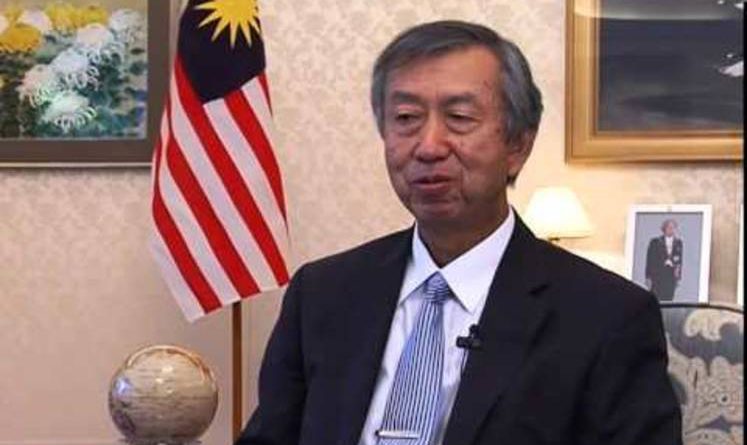Future holds positive evaluations, prospects for Malaysian economy — Japanese Ambassador
KUALA LUMPUR (Jan 14): Japan’s Ambassador to Malaysia, Dr Makio Miyagawa, says the near future holds positive evaluations and prospects for the Malaysian economy.
He said this was due to the current administration under Prime Minister Tun Dr Mahathir Mohamad, which practised transparency and good governance, adding that this approach was crucial in renewing confidence among the people, investors, businesses and the international community.
“The policy of the Government has been reversed, with the current administration taking on a policy of transparency and good governance.
“Firstly, reducing the Government debt so as to stabilise the Government’s management, which I think is good although at an initial stage, gives some slow growth effects, but in the near future, it would lead to a more stable growth and healthy economic management,” Miyagawa told Bernama here today.
He was met at the Malaysian National News Agency (Bernama) headquarters after a short meeting with the agency’s chairman, Datuk Seri Azman Ujang.
The ambassador said he had met with Malaysia’s Ambassador-Designate to Japan, Datuk Kennedy Jawan and also discussed a number of measures to reinvigorate Tokyo-Kuala Lumpur bilateral relations.
“The first thing I said to him (Kennedy) was congratulations on his new appointment and positive prospects of the Malaysian economy for some years to come,” he added.
Miyagawa said the Japanese Government had offered whatever possible assistance which Malaysia needed, and these among others would be the issuance of the Samurai bond, a yen-denominated bond to be issued in the Tokyo market soon.
The Japanese Government has offered to guarantee up to 200 billion yen (RM7.4 billion) of Samurai bonds with a 10-year tenure. Guaranteed by Japan Bank of International Cooperation at an indicative coupon rate of 0.65 per cent, the issuance is expected before March this year.
This will not only help reduce Malaysia’s high financial burden but also create a renewed confidence among Japanese investors to make a return to the country.
“We have offered some measures to strengthen the Malaysian Government’s engagement for projects and programmes. We are also grateful to Dr Mahathir for inviting Japanese universities to Malaysia.
“We have received a variety of proposals on locations and now our investors have been considering which locations are the most appropriate for the future of their starting up of education institutions in Malaysia,” he said.
Elaborating on his discussions with Kennedy, Miyagawa said other issues discussed included industrial collaboration as well as measures to increase investments from Japanese industries to Malaysia.
“I have identified concrete outcomes and possible options for Japanese companies finding investment opportunities in Malaysia,” he added.
Besides the Samurai bonds to help reduce Malaysia’s debts, Miyagawa said other assistance offered were official loans for Malaysia, so that the Malaysian Government could make use of the loans for its programmes or projects.
The loans, among others, are for human resource development, sending students overseas, including Japan, and vocational training through collaboration with Japanese vocational training institutes and colleges.
This, Miyagawa said, should cover the short-term deficiency of the Malaysian budget.
As Japan intensifies its Halal industry, the ambassador said Malaysia’s Entrepreneur Development Ministry had been working closely with its counterpart in Japan following the signing of a Memorandum of Understanding on halal cooperation in November last year.
“Under the agreement, we (Japan) invite Malaysian experts in the halal business to Japan for technology transfer and know-how to manage the halal food industry, pharmaceutical and cosmetics sectors.
“Particularly with regard to the food industry, I think the Japanese market needs short-term assistance from Malaysian experts because we are holding the Tokyo Olympics next year, and for this big event, many foreigners and foreign athletes will come and we need to supply halal food to Muslim visitors,” he noted.
Furthermore, Miyagawa said, as the Japanese food industry was considering exporting its foodstuffs to Malaysia, it was important to seek guidance from Malaysian experts in order to obtain good halal certification approved by the relevant authorities.
Source: TheEdgeMarkets


